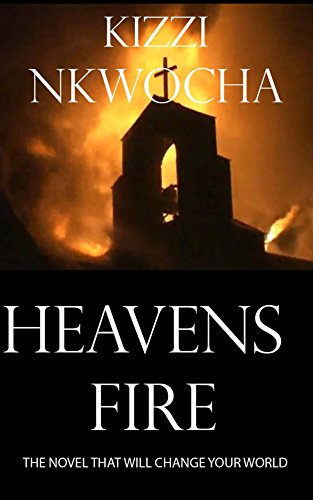
Chapter Two.
Send for Mr Brown
The man prayed silently for guidance but realised that events had gone far beyond that.
Senior Executive Officer Maurice Legatte sat in a pensive silence in his private office on the second floor of Stanmore Hall. The quaint feudal name was a formality many had long since dispensed with and simply called the 18th Century sandstone building Church Headquarters.
Set in sixty-five acres of landscaped gardens on the outskirts of East Ruislip, Stanmore Hall had been bought by New Dawn founder, American Baptist minister turned business mogul Brad Foster in 1961 as the first centre of what would become a worldwide religion.
Stanmore Hall offered Foster the perfect command centre from which he could co-ordinate the growth of his ‘new dawn of religious science.’ It was far enough from the city to escape its poisonous, secular fumes and yet close enough to keep a watchful eye on it.
These thoughts, however, were far from the SEO’s mind as he rubbed his eyes tiredly and re-read the encrypted email on his monitor. The computer had been tempested to prevent electronic monitoring. None the less his door was uncharacteristically locked and his curtains drawn. A clear indication that he did not wish to be disturbed.
A not unhandsome man of 63, Legatte, famous for his early morning three-mile jogs and vigorous squash games, had aged visibly over the past two days.
Being the head of one of New Dawn’s most prominent orgs required being an early riser and Legatte had been in his office since 6.00am. It had just gone eight and his 6-foot frame was hunched forward over his desk. The untouched cup of coffee sitting on top of a leather folder had long since grown cold. His lips, ashen and taut, were pursed in a worried frown.
For the second time in his life, Legatte felt the futile despair of helplessness.
Despite all of his careful calculations, the compromises, the endless nights spent kneeling in fervent prayer imploring His guidance, events were slipping inexorably out of his control.
The orange light cast by the Toulouse Louis fireplace on the far wall of his office offered him little warmth or comfort. Instead it made his face appear pallid and gaunt. Each flame seemed to throw mocking shadows across his furrowed brow. His once sharp and penetrating green eyes seemed patinated by a grey veil as they remained locked to the monitor. These were troubling days. Not just for the Church but for the SEO personally.
Legatte had joined the Church of New Dawn as a raw recruit n 1973. A former detective of the French Gendarmerie Nationale, Legatte was teetering on the brink of suicide. A messy and costly divorce and a growing dependence on the white poison sold in the darkened alleyways of Rue de Martin, had left him trapped in a corner like a wounded and tired wild animal.
The irony. It seemed life had left him little choice other than to choose no life. But, at that moment of his greatest despair, from that bleak, beckoning darkness came the soft, caressing voice of an angel.
Sitting on the soiled bed of his squalid one bedroom apartment, an empty bottle in one hand and a loaded revolver in the other, he heard her. He felt her presence fill the room with the whispering chorus of a thousand heavenly voices. And beyond them, above them and through them, she spoke to him. And her voice was the sound of a golden ring falling inside a silver basin. ‘Even the most cruel suffering has mysterious value. Even life on the edge of death can be beautiful.’
Surely not even Saul on the road to Damascus had been so graced. The Lord had spoken to him. He had been chosen.
There comes a moment in all of our lives when hope speaks to us in the most primitive of ways. To Legatte it spoke to him through the language of tears. As he wept in sweet supplication his eyes settled on a discarded page of newspaper that had fallen to the floor.
On it one classified ad stood out from the rest: ‘Alone? Do you need to be loved? Call our outreach centre and let us help you through the darkness.’ Through the darkness! How that simple phrase filled his heart with longing and hope. Without thinking his trembling hands reached for the phone.
He had dialled the number in the ad prepared to hang up as soon as the phone was answered. Instead he found in the Church the family he had longed for. A peacefulness he had been convinced was impossible in this world.
And, through a combination of steadfast, almost stubborn, strict adherence to church dogma, an uncompromising willingness to do whatever it takes to protect his beloved Church and, yes, he was the first to admit it, sheer luck, he had risen quickly through the church hierarchy.
His promotion to Senior Office at the then unheard of fledgling age of 55 merely reinforced his privately held belief that he had been touched by the hand of God and was meant for Great Things. “Geniuses are the luckiest of mortals,” he often mused. “Because what they must do is the same as what they most want to do.”
After what seemed an eternity Legatte let out an almost imperceptible sigh as he clicked the right mouse button to shut down the computer. It was time to do the one thing he’d prayed to God that he wouldn’t have to do.
Without turning away from the darkened screen, he thumbed an intercom button built discreetly into the fine oak finish of the nineteenth century Victorian mahogany desk. His assistants voice answered immediately. Almost as though he had been waiting for the call. ‘Yes, Sir.’
‘Send for Mr Brown.’ It was done. If the information in the email was correct then these were troubling days indeed. Only one man had the final piece of a jigsaw Legatte had spent five painstaking years putting together. A language and theology professor at Oxford University.
 This is a serialisation of the novel, Heavens Fire. Available from
This is a serialisation of the novel, Heavens Fire. Available from 
